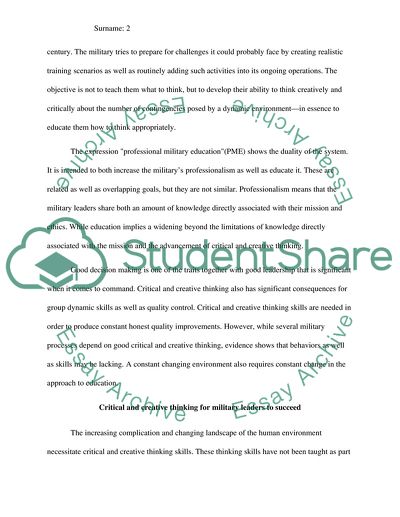Cite this document
(“Why military leaders need Critical and Creative Thinking to be Essay”, n.d.)
Why military leaders need Critical and Creative Thinking to be Essay. Retrieved from https://studentshare.org/military/1648035-why-military-leaders-need-critical-and-creative-thinking-to-be-successful
Why military leaders need Critical and Creative Thinking to be Essay. Retrieved from https://studentshare.org/military/1648035-why-military-leaders-need-critical-and-creative-thinking-to-be-successful
(Why Military Leaders Need Critical and Creative Thinking to Be Essay)
Why Military Leaders Need Critical and Creative Thinking to Be Essay. https://studentshare.org/military/1648035-why-military-leaders-need-critical-and-creative-thinking-to-be-successful.
Why Military Leaders Need Critical and Creative Thinking to Be Essay. https://studentshare.org/military/1648035-why-military-leaders-need-critical-and-creative-thinking-to-be-successful.
“Why Military Leaders Need Critical and Creative Thinking to Be Essay”, n.d. https://studentshare.org/military/1648035-why-military-leaders-need-critical-and-creative-thinking-to-be-successful.


